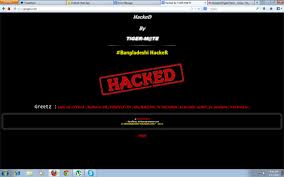Summary: The number of attacks could spike as millions are expected to receive games as presents in the holiday season, especially with the launch of newer consoles like PlayStation and Xbox, says Kaspersky Lab. Users worldwide are being hit by an average of 34,000 attacks related to gaming malware daily, according to a study by Kaspersky Lab. The total number of attacks on gamers was 11.7 million in 2013, and the number is expected to rise with millions of users receiving games for Christmas, especially wih the launch of newer…
Read MoreTag: cyber crime
Online music piracy in the UK drops by a third
In the last year, us Brits downloaded a third fewer pirated music tracks than the year before. According to figures from Ofcom, the number of such songs we snaffled fell from 301 million in March 2012 to 199 million in March this year, the Guardian reports. So maybe we’re less a bunch of Fun Lovin’ Criminals than before. The music industry is said to be on the road to recovery, with total revenues increasing for the first time this year since 1999, although they only went up by 0.3 per…
Read MoreCybersecurity and Internet Governance
Editor’s note: This brief is a feature of the Council of Councils initiative, gathering opinions from global experts on major international developments. Cybersecurity is now a leading concern for major economies. Reports indicate that hackers can target the U.S. Department of Justice or Iranian nuclear facilities just as easily as they can mine credit card data. Threats have risen as the Internet has become a critical infrastructure for the global economy, with thousands of operations migrating onto it. For example, the innocuous practice of bring-your-own-device to work presents mounting dangers…
Read More‘Bangladeshi’ hacks Google’s local domain, users redirected
Internet users trying to access Google’s search engine on Monday morning quickly discovered the company’s local domain was compromised. A hacker, who identified himself as Bangladeshi, defaced the company’s Google.co.ke domain, replacing the page with a black background with the word ‘hacked’ engraved on it. The error was quickly fixed. Google Kenya, however, denied claims it had been hacked into. The company explained that it was the domain name server (DNS) which hosts google.co.ke that had been compromised. Adapted from nation.co.ke
Read MoreCould data science turn the tide in the fight against cybercrime?
Cybercrime is booming, with malicious hacking and online fraud growing at an alarming rate. Reversing this trend appears an almost sisyphean task, but machine learning and bayesian statistics are proving invaluable to cyber security organisations source
Read More




